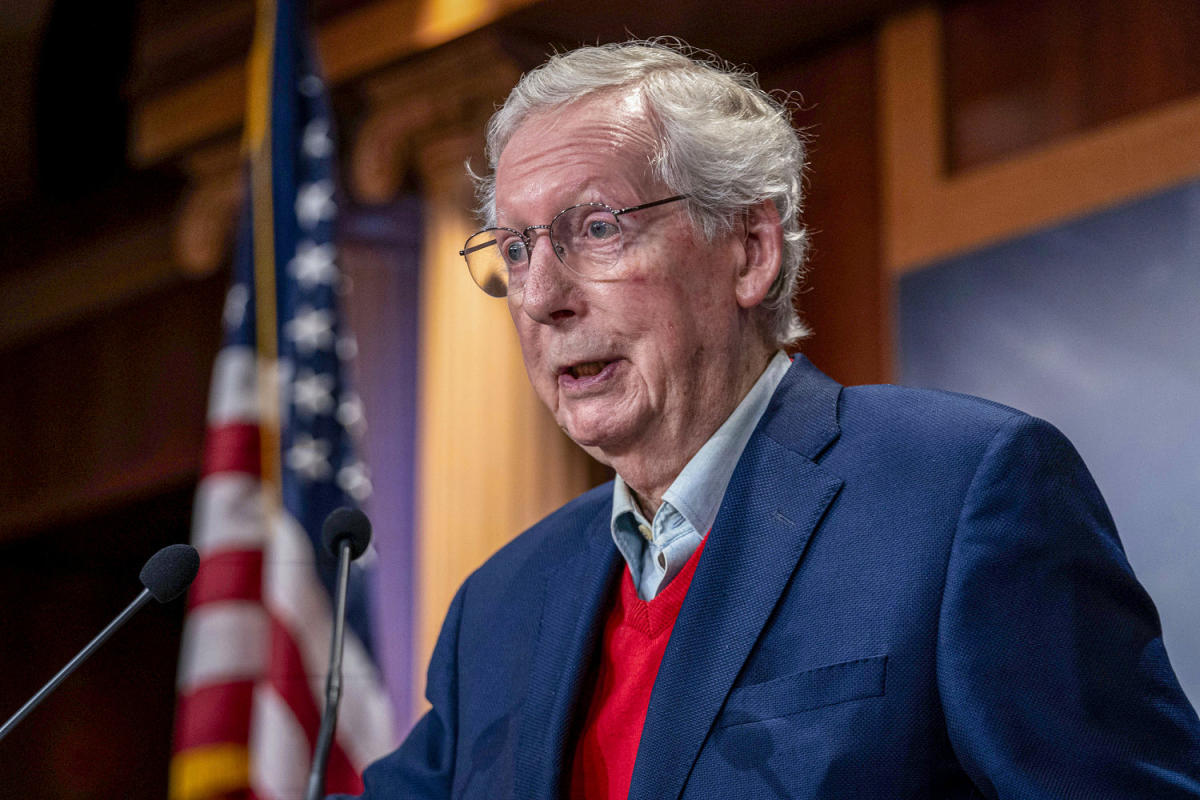
Ahead of the elections, a variety of Democratic candidates and leaders, including Kamala Harris, were fully on board with overhauling the Senate’s filibuster rule. Those efforts, as the Senate Republicans’ outgoing leader reminded the public the day after Election Day, are going to have to wait a while. HuffPost reported:
Senate Minority Leader Mitch McConnell (R-Ky.) said Wednesday that the Senate’s supermajority threshold for passing legislation will be safe with Republicans controlling the chamber — even if President-elect Donald Trump pushes to kill the filibuster. “One of the most gratifying results of the Senate becoming Republican: The filibuster will stand,” McConnell said during a news conference at the Capitol.
The Kentucky Republican, who’ll step down as GOP leader, added that he believes the filibuster is “very secure.”
It’s worth emphasizing that Donald Trump might have a very different opinion on the matter. During his first term, he repeatedly called for the filibuster to be eliminated, and it’s easy to imagine him making a related push when he returns to the White House.
But let’s say McConnell is right and the filibuster will endure for at least another two years. Is that good news or bad?
For many Democrats, it might seem encouraging. After all, if Republicans control the White House and both chambers in Congress, the filibuster rule might very well be the only thing preventing the GOP majorities from passing everything they want.
But every conversation about the filibuster should focus on an underappreciated detail: Most of what Senate Republicans want can be achieved by simple majorities, rendering the filibuster largely irrelevant.
As we’ve discussed, if GOP officials control Capitol Hill, they’ll approve tax breaks for billionaires through the budget reconciliation process, which requires 51 votes in the Senate, not 60. This is the same process Republicans used to try to scrap the Affordable Care Act in Trump’s first term, and the party might very well try to target health care benefits the same way again — and the filibuster wouldn’t be an option.
Similarly, for the past decade, the filibuster rule has no bearing on confirmation votes, which means that no matter what happens with House control, Republicans can spend at least the next two years stacking the courts with young, far-right reactionaries — while awaiting some Supreme Court retirements.
The fact of the matter is that the GOP doesn’t have a robust legislative agenda. If the party were to spend 2025 and 2026 passing tax breaks for the wealthy, confirming partisan judges, and allowing the Trump administration to pursue radical goals through executive powers, Republicans would see that as time well spent. The filibuster rule would remain intact, but it also wouldn’t make any difference.
This post updates our related earlier coverage.
This article was originally published on MSNBC.com
EMEA Tribune is not involved in this news article, it is taken from our partners and or from the News Agencies. Copyright and Credit go to the News Agencies, email news@emeatribune.com Follow our WhatsApp verified Channel




